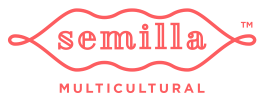
She was fierce, unapologetic, unselfish and brava.
Over 21.2 million (all) immigrant women reside in the United States since 2013 with many traveling by foot, sea and/or air, facing near death experiences, isolation and decades of separation from family. Saving their children from hunger, political unrest, and even violence, for a better future, continues to underscore a Latina mother’s plight for a safer and better tomorrow in America.
Many mamas bravas faced family separation through transnational motherhood, where ‘Latina immigrant women work and reside in the United States, while their children remain in their countries of origin.’ Others had no choice but to send their children alone on planes to the United States or travel with their toddlers to the land of opportunity.
Key stats which illustrate the Latina immigrant plight:
Many migrated in ‘larger numbers due to the 1965 Immigration Act – ending a longstanding national origins quota – linked to the ‘third great wave of immigration’ heavily influenced by migration from Latin America migration.
Caribbean female immigrants led with 55%; a region inclusive of non-Spanish speaking countries.
A majority, 54%, migrated from South America ( the majority from Peru), followed by Mexico and Central America, 47% between 1980 – 2013.
In recent years, a large share of Mexican women are migrating alone because – ‘as the principal wage earners for their families—are driven to migrate in search of a living wage, leaving their families and children behind.’
Approximately 15 percent of Mexican women have a son or daughter living in Mexico – thereby experiencing ‘transnational motherhood.’
Over 14,000 Cuban children were sent alone to the US in ‘the largest child rescue ever recorded in the Western Hemisphere.’
Their earnings from low status jobs transform the ‘lives of their families and local economies.’
Immigrant Latina moms incorporate ‘cultural values and beliefs or cultural forms of parental engagement, such as sacrificios (sacrifices), consejos (advice), and apoyo (moral support).’
Despite the challenges, mamás bravas nurtured a generation of Latino children to find their place in America, the land of the free.
I can speak to my own immigrant story, when my Uruguayan-born mom’s concerns over having my brother and I live under imposed civic-military dictatorship forced her to leave her family and a career in nursing and seek residency in the US through my dad, who migrated two years earlier. That was back in 1971, when I was only six years old and having to navigate a new language and country, as well as its customs.
We had very humble beginnings, while my parents worked around the clock at restaurants, factories and later in healthcare, my mother’s passion, to ensure that my brother and I had a safe and healthy home environment to learn and excel. And, we did — both my brother and I are very blessed to lead enriching lives as college-educated professionals. Her sacrifices (and my dad’s) made my brother and I better people and proud Uruguayan-Americans.
We celebrate our mamá brava’s legacy and many others who sacrificed everything for a better life for their children.
Maria Gladys Alcántara
‘My mother was my biggest cheerleader. My maverick. My rock. She always encouraged women, both young and old, to enrich the lives of their families by pursuing their dreams. She would often say, an intellectually fulfilled woman will always nurture her family with great joy and comfort.’ Mi mama es brava!
Source: Mi Mamá Es Una Brava
